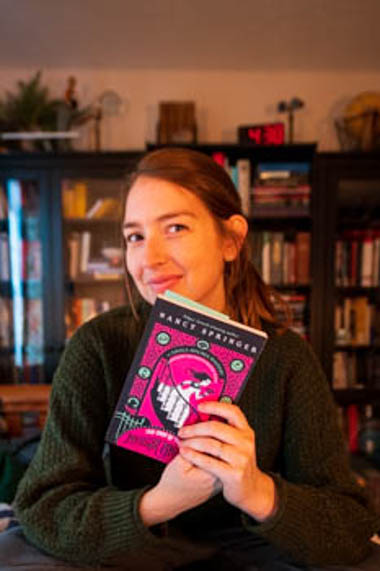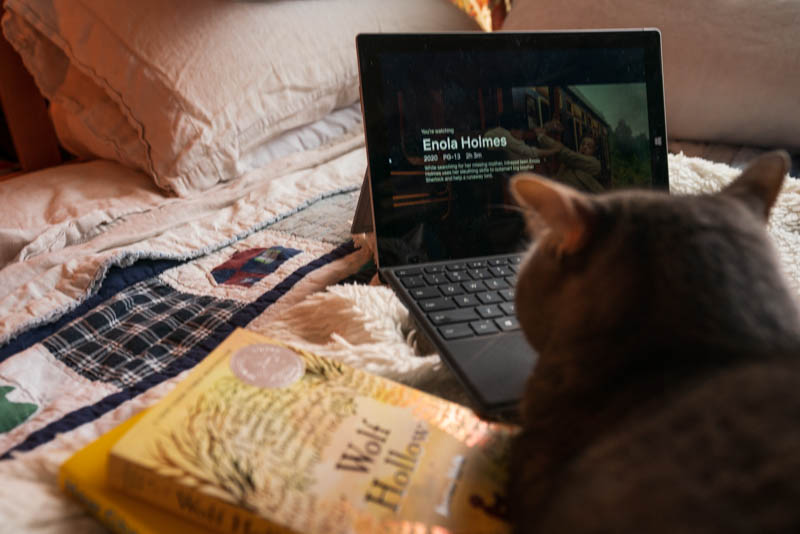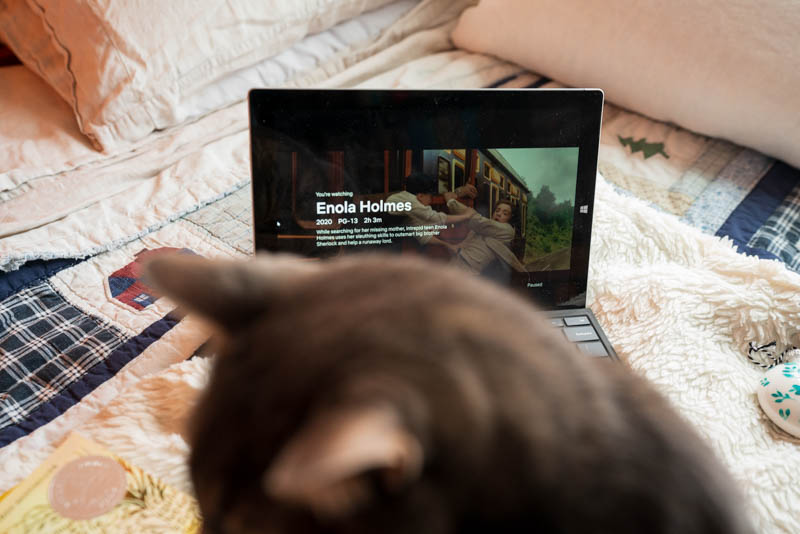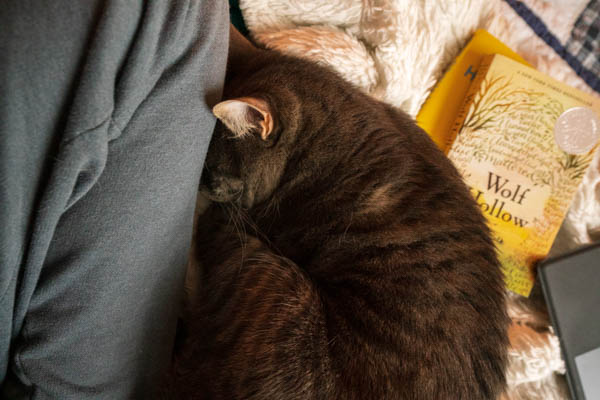Alone|Enola
Welcome to the countryside of Victorian era England, where top hats are all the rage, bicycles are the latest in hustle and bustle, and where young Enola Holmes resides with carefree curiosity. She explores to her heart’s content with no supervision or limits in her country home. But those freedoms are threatened to disappear when her mother vanishes on the morning of Enola’s 14th birthday.

Holmes. Yes, you caught that, huh? Holmes, as in Sherlock Holmes the famous detective of Victorian London, is the much older and unfortunately estranged brother of Enola Holmes. Mycroft and Sherlock took a very back seat to the well-being and tiniest awareness of their kid sister until now, as they search to find their missing mother. But first, Sherlock and Mycroft must figure out what to do with young Enola. This, of course, brings up themes of neglect, abandonment, and how a young girl of 14 years old copes and survives on her own.
In the first book of the series, Enola sets out on her own to find her mother in London, evading her clever (and most determined) brothers with her own sleuth-like skills. On her way to the dark alleys of London, Enola stumbles upon a mystery of a young boy, the missing Marquess. Enola, recognizing the parallelism of their stories, chooses to deter from finding her mother (just a small distraction) to help this other mother find her lost son, using her clever curiosity and cunning costumes to aid her in this investigation.
Once in London, Enola struggles to hold her bearings. The city is dirty, unforgiving, deceitful, and dark at the best of times. And yet, Enola endures, perseveres, and with that Holmes determination makes a home in the shadows of London alleyways.

The book series written by Nancy Springer focuses on a compassionate, creative, clever leading lady that never fails to help the oppressed, seek warmth for the less fortunate, and put the needs of others before her own. She is constantly learning on the go, stumbling, recovering, and learning from her mistakes. She is capable and kind, often reminding her gentle readers that subtle gestures of kindness stretch miles and miles. It’s always a good decision to be kind.

As we know the book is always better. Buuuuut I might have to make a small amendment for this one: Netflix’s adaptation of Enola Holmes Book 1 of 6 came close—so close—to out doing the book series.
In part, the cast is phenomenal: a charismatic Millie Bobby Brown as Enola Holmes, a charming Henry Cavill as Sherlock Holmes, and an unrelenting Sam Claflin as Mycroft Holmes, the always spectacular Helena Bonham Carter as the disappearing mother, and sweet newcomer Louis Partridge as the Missing Marquess.
This film is top notch. I struggle to do a proper comparison to the book, as it deters from the book so much. The film combines all six books into one (for the most part), using creative problem solving from book 3 for this film, stealing disguises from other books in the series to add to this film, and seriously so much more.
Then there’s this sweet tender chemistry between Enola and young Lord Tewksbury that does not at all exist in the books. In fact, the books often battle Enola’s isolation and loneliness as her constant adversary. She does find friendship with a few characters, however momentarily. Ultimately the series seeks to restore sibling and familial relationships.

I saved the best for last. Enola’s disappearing mother, Eudoria Holmes, of the book series is always at the heart of Enola’s story and connects each book to the other, but finding mum begins to fade as Enola starts to live her life on her own terms. In the book series, I found it difficult to sympathize and even understand Eudoria’s decision to leave behind her precious daughter (but since it wasn’t the central plot, it didn’t really bother me much). The film, however, does a better job of creating a believable, almost empathetic character of fleeing mother for viewers to understand. A good villain is a relatable (preferably well communicated) villain, don’t you think?
I can go on. But I’ll stop here and let you read the series and watch the film, as I highly recommend them both.